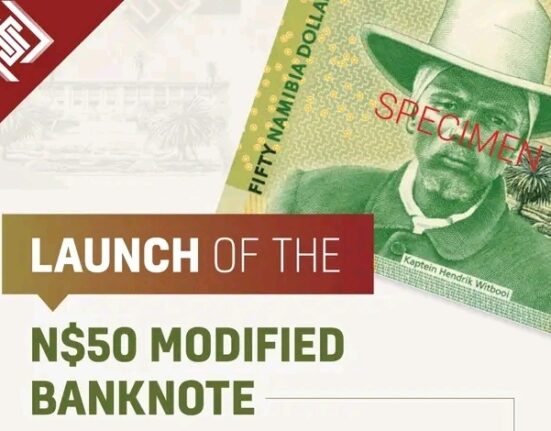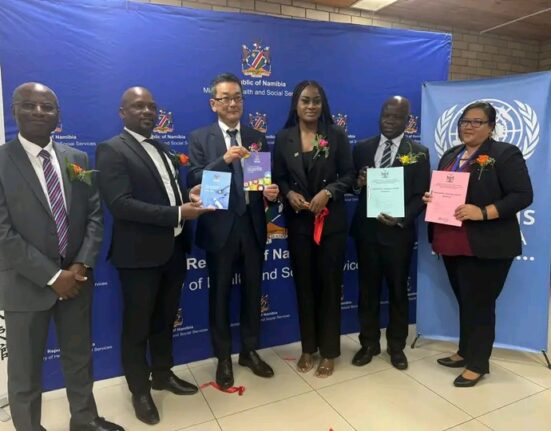Namibia has produced a wealth of talent in the music industry, and one name that shines brightly in this constellation is Lady May. A trailblazer in Afro-Pop and an icon of artistic expression, Lady May has captivated audiences with her unique sound, bold personality, and unwavering commitment to her craft. This article explores Lady May’s journey, her contributions to Namibian music, and her status as a cultural icon.
Early Life and Musical Beginnings
Lady May, born Martha Namundjebo on December 20, 1986, in Ovamboland, Namibia, grew up in a musically rich environment. From an early age, she displayed a deep passion for music and the performing arts. Her interest in singing and dancing was nurtured by her family and community, who recognized her talent.
Her big break came in the early 2000s when she began performing at local events. Her vibrant stage presence and distinctive voice quickly set her apart from other aspiring artists. Drawing inspiration from Afro-Pop, traditional Namibian sounds, and contemporary global music, Lady May crafted a unique style that would eventually catapult her to fame.
Breaking Barriers with Her Debut
Lady May’s career officially took off with the release of her debut album, “Kamali”, in 2004. The album was a groundbreaking success, showcasing her ability to fuse traditional Namibian rhythms with modern Afro-Pop beats. Songs like “Kamali” and “Kuli” quickly became anthems, earning her recognition as a rising star in Namibia’s music scene.
Her music was fresh, energetic, and unapologetically Namibian, making her a household name. At a time when Afro-Pop was still gaining traction in Namibia, Lady May’s work demonstrated the genre’s potential to connect with both local and international audiences.
Lady May’s Evolution as an Artist
As Lady May’s career progressed, so did her music. Each of her albums reflected her growth as an artist, as she experimented with different sounds and themes. Her second album, “Come and Get Me” (2006), solidified her position as a leading figure in Namibian music. Featuring hits like “Chokola” and “Meme“, the album explored themes of love, empowerment, and resilience, resonating deeply with her growing fan base.
One of the defining characteristics of Lady May’s music is her ability to incorporate elements of traditional Namibian culture into her work. She frequently uses indigenous languages such as Oshiwambo and Damara in her songs, ensuring that her music remains rooted in her cultural heritage while appealing to modern audiences.
Her versatility as an artist became evident as she ventured into other genres, including house, kwaito, and reggae, while maintaining her Afro-Pop essence. This adaptability has allowed Lady May to remain relevant in a constantly evolving music industry.
International Recognition
Lady May’s talent and unique sound have earned her recognition beyond Namibia’s borders. She has performed at various international events, including festivals in South Africa, Angola, and Europe, where her dynamic performances have been met with critical acclaim.
In 2011, Lady May was nominated for the prestigious Channel O Music Video Awards, a milestone that marked her as one of the most influential African artists of her generation. Her nomination brought Namibian music to the forefront of the African music scene, opening doors for other artists from the country.
Lady May’s participation in the 2012 edition of Big Brother Africa: StarGame further boosted her international profile. Her charismatic personality and artistic flair captivated audiences across the continent, making her a beloved figure in African pop culture.
Awards and Achievements
Over the course of her career, Lady May has received numerous accolades for her contributions to Namibian music. She has won multiple Namibian Annual Music Awards (NAMAs), including Best Female Artist and Best Afro-Pop Artist.
Her ability to consistently deliver hits and innovate within her genre has earned her the respect of fans and critics alike. Her music videos, known for their creativity and bold visuals, have set a high standard in the Namibian music industry.
Lady May’s achievements extend beyond music. She is also a philanthropist, using her platform to advocate for social causes, including women’s empowerment and education. Her work in these areas has further cemented her status as a role model for young Namibians.
Challenges and Resilience
Despite her success, Lady May’s journey has not been without challenges. She has faced criticism for her bold fashion choices and outspoken nature, which some view as controversial. However, Lady May has remained true to herself, using these challenges as fuel for her artistry.
Her resilience in the face of adversity has inspired countless fans, proving that authenticity and perseverance are key to achieving success. Lady May’s ability to turn criticism into motivation is one of the qualities that make her a powerful figure in Namibian music.
Legacy and Impact
Lady May’s impact on the Namibian music industry is undeniable. She has paved the way for female artists in a male-dominated industry, proving that women can excel as performers, songwriters, and cultural ambassadors. Her influence extends beyond music, as she has become a symbol of empowerment and self-expression for Namibians of all ages.
Her ability to blend traditional and contemporary sounds has helped define the modern Namibian music scene. By staying true to her roots while embracing innovation, Lady May has set a standard for excellence that continues to inspire the next generation of artists.
Lady May’s journey from a small-town girl with big dreams to the Queen of Namibian Afro-Pop is a testament to her talent, determination, and passion for music. Her contributions to the Namibian music industry have not only elevated the Afro-Pop genre but also put Namibia on the map as a hub of musical talent.
As Lady May continues to evolve as an artist, her influence on Namibian culture and music will remain strong. Her legacy as a trailblazer, cultural ambassador, and role model ensures that she will always be remembered as one of Namibia’s greatest musical icons.













